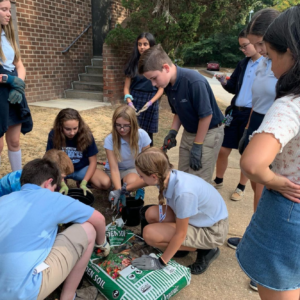TUGI: The Urban Garden Initiative
go.ncsu.edu/readext?850650
en Español / em Português
El inglés es el idioma de control de esta página. En la medida en que haya algún conflicto entre la traducción al inglés y la traducción, el inglés prevalece.
Al hacer clic en el enlace de traducción se activa un servicio de traducción gratuito para convertir la página al español. Al igual que con cualquier traducción por Internet, la conversión no es sensible al contexto y puede que no traduzca el texto en su significado original. NC State Extension no garantiza la exactitud del texto traducido. Por favor, tenga en cuenta que algunas aplicaciones y/o servicios pueden no funcionar como se espera cuando se traducen.
Português
Inglês é o idioma de controle desta página. Na medida que haja algum conflito entre o texto original em Inglês e a tradução, o Inglês prevalece.
Ao clicar no link de tradução, um serviço gratuito de tradução será ativado para converter a página para o Português. Como em qualquer tradução pela internet, a conversão não é sensivel ao contexto e pode não ocorrer a tradução para o significado orginal. O serviço de Extensão da Carolina do Norte (NC State Extension) não garante a exatidão do texto traduzido. Por favor, observe que algumas funções ou serviços podem não funcionar como esperado após a tradução.
English
English is the controlling language of this page. To the extent there is any conflict between the English text and the translation, English controls.
Clicking on the translation link activates a free translation service to convert the page to Spanish. As with any Internet translation, the conversion is not context-sensitive and may not translate the text to its original meaning. NC State Extension does not guarantee the accuracy of the translated text. Please note that some applications and/or services may not function as expected when translated.
Collapse ▲Low-income youth are more likely to face a variety of issues during some of their most formative years. These adversities can impact social and emotional development, education, and overall quality of health. Urban gardening has become an effective method for providing not only food to this population, but also networking and volunteering opportunities.
In an effort to learn more about urban gardening and it’s benefit for low-income youth and communities we reached out to Zofi Sanders, director of partnerships for The Urban Gardening Initiative (TUGI). TUGI is a 501(c)3 dedicated to decreasing the effects that food insecurity can have on low-income youth. With over 60 chapters worldwide, the youth-run organization connects younger generations with environmental education materials, access to foods, alongside volunteering and leadership opportunities.
Zofi discusses the organizations value of creativity in bringing larger scale farms to cities in need. She also gives some insight on how the TUGI initiative began, her views on what it means to be an activist, the impacts of COVID-19 on the organization as a whole as well as how the organization contributes to youth’s social development. We ultimately learned more about TUGI, the concept of urban gardening, and how individuals/organizations can become more involved.
To learn more about this “by youth, for youth” non-profit check out the TUGI website, Instagram and YouTube.
Listen to the full episode (on Spotify, Apple Podcasts, Stitcher and anywhere you get your podcasts!) and check out our Questions for Extended Dialogue to reflect on urban gardening and its benefit for youth.
|
Questions for Extended Dialogue
|




